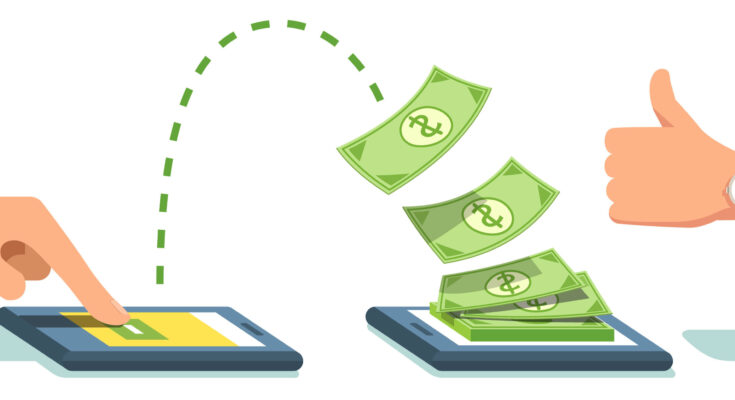Introduction
Money transfer is a fundamental financial transaction that enables individuals and businesses to send funds from one party to another, often across different locations and even countries. With the advent of digital technology, money transfer methods have evolved, offering various options that cater to diverse needs. This article explores the different types of money transfers, their security measures, and emerging trends in the industry.
Types of Money Transfer
Bank Transfers
Bank transfers are one of the most traditional and widely used methods of transferring money. They include:
- Wire Transfers: These are electronic transfers of funds between banks or financial institutions. They are typically used for large sums or international transactions. Common providers include SWIFT and Western Union.
- Automated Clearing House (ACH) Transfers: These transfers are used for moving funds between bank accounts within the same country. They are often used for payroll, direct deposits, and bill payments in the United States.
- Real-Time Gross Settlement (RTGS): Used for high-value transactions, RTGS ensures that funds are transferred and settled in real-time on a gross basis without bundling with other transactions.
Online Payment Services
Online payment services have become increasingly popular due to their convenience and speed. Key players include:
- PayPal: Allows users to send and receive money electronically through linked bank accounts or credit cards.
- Venmo: A mobile payment service owned by PayPal that is particularly popular among younger users for peer-to-peer transfers.
- Skrill: An international digital wallet provider that enables users to make payments and transfers globally.
Mobile Money
Mobile money services enable users to transfer funds using their mobile phones. These services are particularly popular in regions with limited access to traditional banking:
- M-Pesa: A mobile phone-based money transfer service launched in Kenya that allows users to deposit, withdraw, transfer money, and pay for goods and services.
- WeChat Pay and Alipay: Dominant in China, these platforms integrate social media and payment services, enabling users to transfer money and pay for products and services seamlessly.
Cryptocurrency Transfers
Cryptocurrencies like Bitcoin and Ethereum offer a decentralized method of transferring funds without the need for intermediaries:
- Bitcoin: The first and most well-known cryptocurrency, enabling peer-to-peer transfers on a decentralized network.
- Ethereum: Besides being a cryptocurrency, it supports smart contracts and decentralized applications (DApps), enabling more complex financial transactions.
Security Measures
Ensuring the security of money transfers is paramount to protect against fraud and cyber threats. Key security measures include:
Encryption
Encryption ensures that data transmitted during money transfers is secure and inaccessible to unauthorized parties. End-to-end encryption is commonly used to protect sensitive information.
Two-Factor Authentication (2FA)
2FA adds an extra layer of security by requiring users to provide two forms of identification before completing a transaction, such as a password and a one-time code sent to their mobile device.
Fraud Detection Systems
Advanced fraud detection systems use machine learning and artificial intelligence to monitor transactions for suspicious activities, flagging and blocking potentially fraudulent transfers.
Regulatory Compliance
Money transfer services must comply with various regulations to prevent money laundering and financing of terrorism. These include Know Your Customer (KYC) and Anti-Money Laundering (AML) protocols, which require verifying the identities of users and monitoring transactions.
Emerging Trends
Blockchain Technology
Blockchain technology is transforming money transfers by providing a secure, transparent, and decentralized ledger for recording transactions. This technology reduces the need for intermediaries, lowers costs, and speeds up transaction times.
Instant Payments
Instant payment systems, such as the European Union’s SEPA Instant Credit Transfer and the United States’ RTP (Real-Time Payments) network, enable immediate settlement of transactions, providing greater convenience and efficiency.
Biometric Authentication
Biometric authentication methods, such as fingerprint scanning and facial recognition, are being integrated into money transfer services to enhance security and user experience.
Cross-Border Solutions
Cross-border money transfers are becoming more efficient with the development of new technologies and services aimed at reducing costs and improving speed. Companies like TransferWise (now Wise) and Ripple are leading the way in providing cheaper and faster international transfers.
Financial Inclusion
Efforts to increase financial inclusion are driving innovations in money transfer services, particularly in developing regions. Mobile money and digital wallets are providing unbanked populations with access to financial services, empowering them economically.
Conclusion
Money transfer services are essential for personal and business transactions in today’s global economy. With various methods available, from traditional bank transfers to cutting-edge cryptocurrency solutions, users can choose the option that best suits their needs. Ensuring the security of these transfers through robust measures and staying informed about emerging trends can help individuals and businesses navigate the evolving landscape of money transfers effectively. As technology continues to advance, the future of money transfers promises greater convenience, speed, and inclusivity.
For more information, click here.



